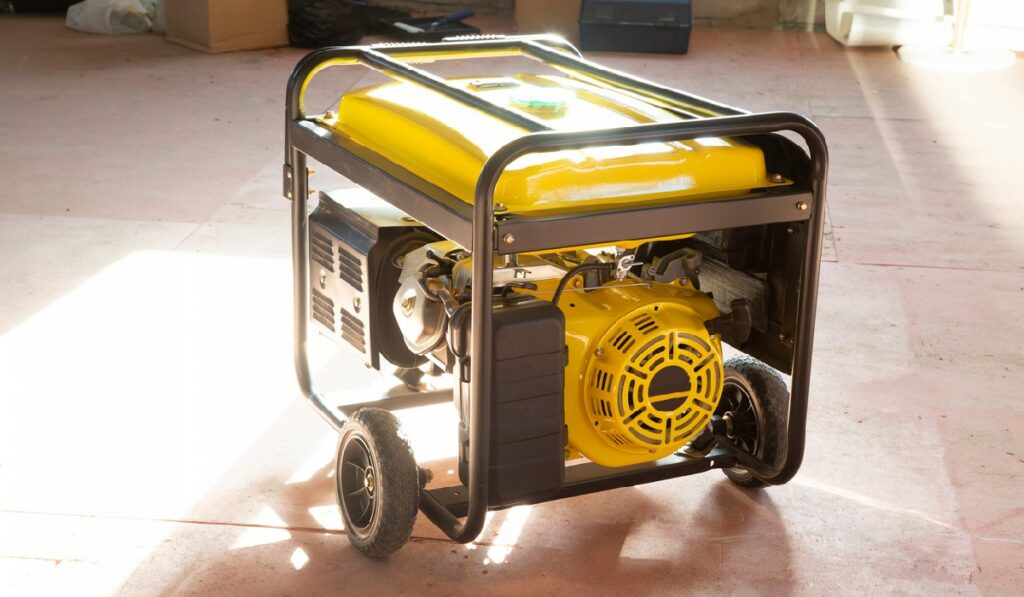A Complete Guide For Choosing the Right Size Generator

Are you considering purchasing a generator? If so, you will want to make sure you get the right size generator for your needs; a generator that’s too small won’t do much good, while one that’s too large will be a waste of money. In this post, we’ll provide a complete guide to choosing the right size generator and all the factors you should consider when selecting your generator. We’ll also share our top picks for the best generators on the market so you can find the perfect one for your needs.
Types of Generators
The two main types of generators available are portable and standby. Portable generators are best suited for powering small appliances or electronics in remote or off-grid locations. They are typically easy to transport, making them well-suited for camping trips or tailgating activities. Standby generators are larger units permanently set up at a specific location, such as a home or business. These units usually require professional installation and tend to be more expensive than portable models.
Measure Capacity Needs
The primary factor in deciding which type of generator to purchase is what you intend to power with it. Portable generators come in various sizes and can typically handle smaller devices such as lights and radios. Standby generators are designed to power larger appliances such as refrigerators and sump pumps. To accurately assess your capacity needs, make a list of all the items you intend to power with the generator and calculate their wattage requirements. This will help you determine the minimum wattage requirement for the generator you need.
Consider Sound Ratings
In addition to capacity requirements, sound ratings should also be considered when choosing a generator. Portable generators can be quite noisy, so it’s important to pay attention to their decibel rating before purchasing. Most portable generators have ratings between 60 and 90 decibels, so make sure that whatever you choose is not too loud for your intended use and environment.
Evaluating Connectivity
Another important factor in picking out a generator is the type of outlets it has available for connecting devices or appliances. Portable generators typically have a single 120-volt outlet which may limit their usefulness if you have multiple items that need powering simultaneously. Many portable models also have a 12-volt DC outlet which can be used to connect car batteries or other DC devices such as cell phones and laptops. Some units do offer additional plug-ins, but these typically require an adapter cord since they may not fit standard electrical outlets found in homes or businesses.
Accessorizing the Generator
Once you’ve chosen your ideal generator model, you may want to consider the optional accessories available to enhance its usability. Many portable generators come with wheel kits which make transporting them much easier, while some have covers that protect them from debris and weather conditions when not in use. If connecting multiple devices is necessary then consider investing in an extension cord with multiple outlets so that each device can be connected separately without overloading it with too many plugs at once. Additionally, most portable generators come with a transfer switch for safely connecting it to your home electrical system, allowing you to easily power lights, TVs, and more directly from your house’s mains supply when needed during an outage by using a portable generator as an emergency power source.
Generator Power Ratings
Generators come equipped with wattage ratings that indicate their maximum output capacity when running continuously over a specified period of time. It’s important to pay attention to this rating when deciding on which model is best suited for your needs, as running a unit at full power for extended periods may cause damage due to wear and tear or overheating of internal components if used beyond its rated capacity for too long a period of time without resting in between use cycles (even if it does not reach full power).
Other Considerations
Finally, don’t forget about fuel efficiency when shopping for a new generator – both portable and standby models can range significantly in how much fuel they consume per hour depending on their design and power output requirements; natural gas models are usually more fuel efficient than those running on gasoline or diesel fuel. Generally speaking, smaller portable generators tend to be more fuel efficient than larger standby units due to their lighter-weight materials used in construction which require less energy consumption compared with their heavier counterparts. However, this can vary, so it’s still important to compare different models side-by-side before making a decision on which one is best suited for your energy needs (both now and in the future). For more information on portable generator safety tips, please refer here before the operation begins!
Conclusion
Selecting the right size generator for your needs can be a daunting task. By following this guide, you’ll be able to find the perfect model for your needs. With the right information and a careful selection process, you can confidently choose the right size generator for all your power needs.
